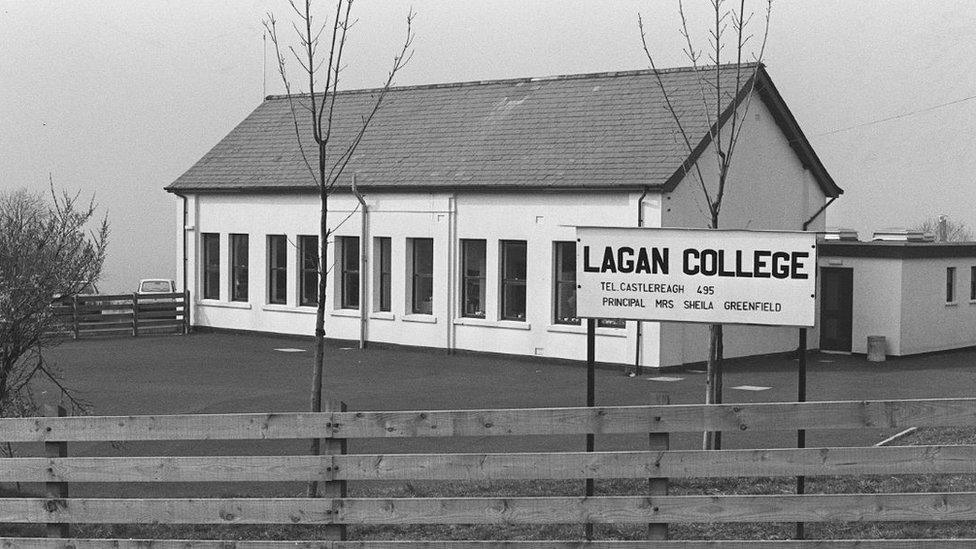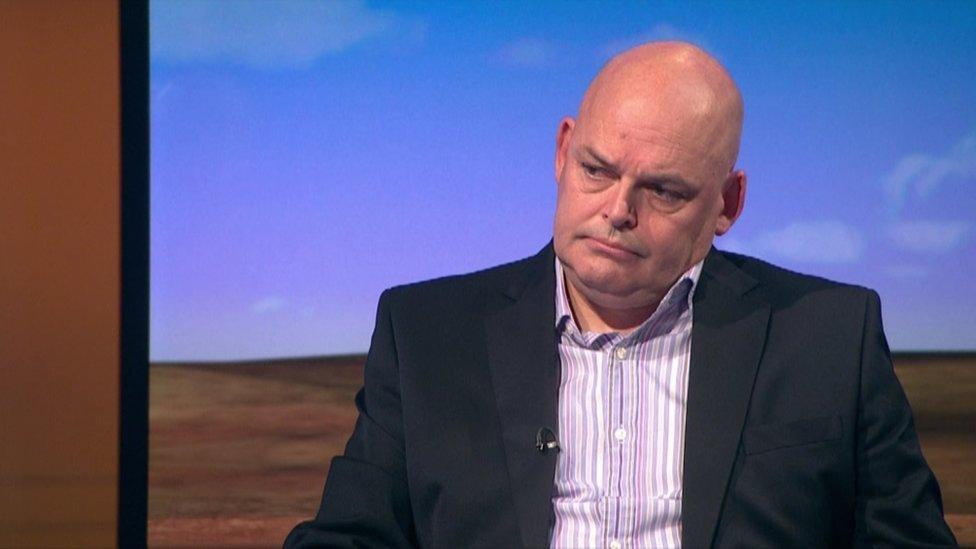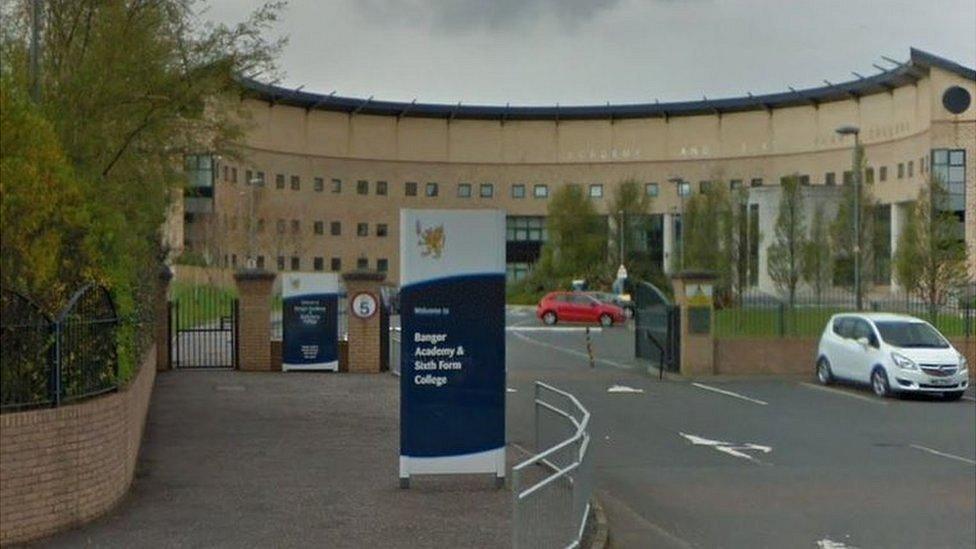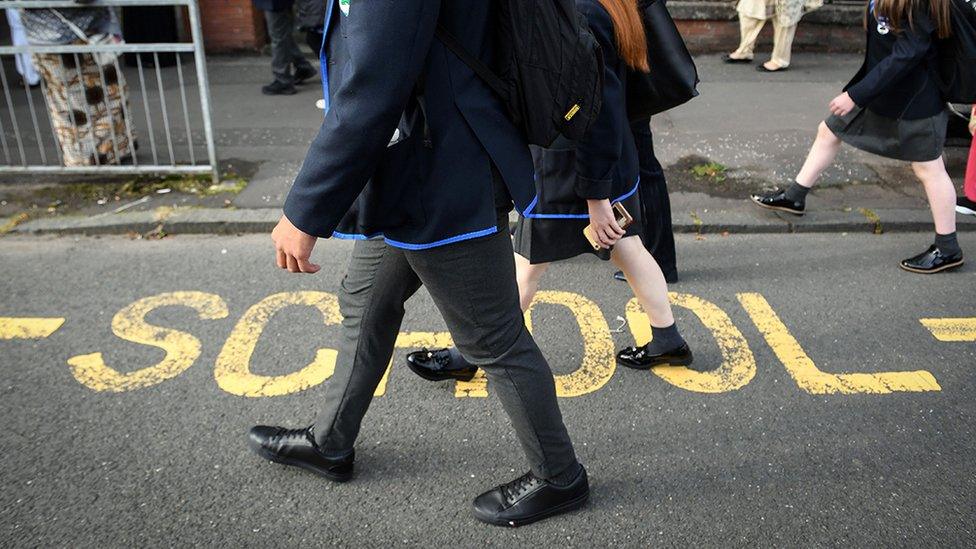Divided education and schools cost £226m extra a year - report
- Published

Northern Ireland's school system is largely made up of Catholic maintained or controlled schools.
The divided education and school system in Northern Ireland costs £226m extra a year to the public purse, new research claims.
The research from Ulster University (UU) has been partially funded by the Integrated Education Fund.
It looks at how much the duplication of things such as transport and services to different types of schools costs.
It estimates the total cost of division and duplication of services in education at about £600,000 a day.
Dr Stephen Roulston, one of the authors of the report, said the current system is "absolutely unsustainable".
"It was recognised in the New Decade, New Approach document which all the parties signed up to, that we cannot continue to have a divided system of education which is costing us that amount of money whenever we really need that money going into frontline education services," he told BBC Radio Ulster's Good Morning Ulster programme.
Northern Ireland's school system is largely made up of Catholic maintained or controlled schools.
Most pupils in Catholic maintained schools are from a Catholic background, while the majority of pupils in controlled schools are from a Protestant background.
However, many schools of both types have pupils from other religious backgrounds and none.
There are also other types of schools, such as Irish medium schools or voluntary grammar schools.
But only about 8% of pupils in Northern Ireland are taught in formally integrated schools, which seek to mix children from Catholic, Protestant and other backgrounds.
'Cost of division'
The just-published UU research estimates of the additional financial costs to Northern Ireland of a "divided" educational system using data from the EU, the Department of Education (DE) and other sources.
There have been some previous attempts to estimate the additional costs of segregation in Northern Ireland.
In 2007, research by Deloitte suggested that division and conflict cost the taxpayer an extra £1.5bn, external every year.
In 2016, a report commissioned by the Department of Finance suggested public services incurred additional annual costs of up to £833m in which division could be a factor.
The new UU paper said that "much of the economic cost of division in Northern Irish society is due to duplication".

Lagan College was the first formally integrated school in Northern Ireland
"It has long been recognised that many services in NI are duplicated with estate agents, public houses, solicitors, chemists, banks, indeed virtually every kind of service, doubled up, with one serving each community," it said.
But the research looks in specific detail at the cost of division in education.
It estimates the costs of things like additional school transport due to segregation and academic selection, separate schools in an area, and the cost of programmes to bring children educated separately together.
That includes money spent on Shared Education, which brings pupils from separate schools and different backgrounds coming together for joint classes and activities.
"While Shared Education is largely about advancing reconciliation, it does very little to address the cost of duplication," the UU research argued.
"Costs would be largely unnecessary in a system where children were educated together."
Peter Osborne, chairman of the Integrated Education Fund, said he thought the report's estimated cost of division and duplication of services in education was "a little bit conservative".
"What we are talking about here are key issues around not just the pressure on the public purse when all departments will say we need more money, including education," he said.
"It's also about looking at a wider picture of having our young people and children on either side of the community not coming out of school with their life patterns already set."
Jim Clarke, former chief executive of The Council for Catholic Maintained Schools, said it was "very difficult to disentangle the various resources of communities which are divided both socially and religiously".
"The concept of simply lumping children into a single school is not the answer, because the bottom line here is we have too many schools," he continued.
"More efficient schools, i.e. larger schools, will reduce costs and of course the big cost that is non-educational is transport and the concept of moving children into integrated schools does not actually save very much in terms of transport."
'Growing up separately'
The paper said that there was a "double whammy" of financial and social costs of division in education.
"We are overspending on what is arguably a wasteful and unsustainable system of education and a lot of money is also being spent to ameliorate the outcome of that system - young people by and large growing up separately," it concluded.

Peter Osborne said he thought the report's estimated cost of division and duplication of services in education was "a little bit conservative"
"Societal divisions persist and continue to cost our economy, define our confrontational politics and blight the lives of many of the people who live here.
"These costs can also be seen in our education system, where division, separation and duplication all add unnecessary and increasingly unaffordable costs.
"Consequently, funding which could be spent directly on educating children and young people is wasted.
"The question is not 'can we afford to address this?'
"Instead, it should be 'can we really afford not to?'"
There are significant pressures on Northern Ireland's education budget.
For instance, a scheme to give payments to the families of 96,000 children entitled to free school meals over the school holidays was recently axed to save money.
Related topics
- Published8 March 2023

- Published11 November 2021
